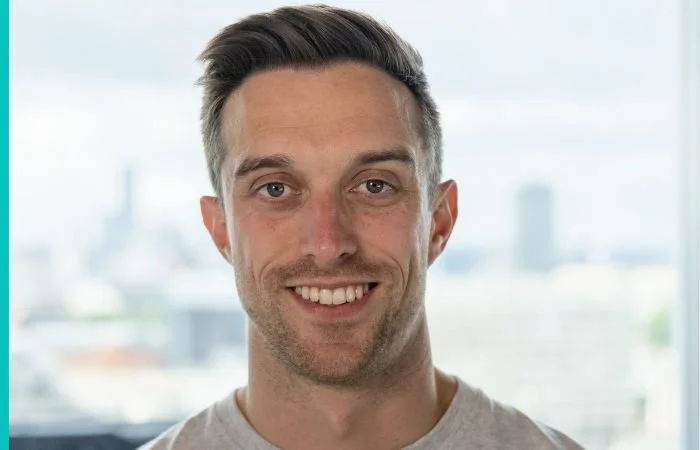Episode 16 with Charlie Cook : From Spark to Scale: The Rightcharge Start-Up Story
Auto Futurecast is available on
Charlie Cook, founder of Rightcharge, recently appeared on Auto Futurecast to share his journey from civil engineering student to climate-tech entrepreneur.
His story offers an unfiltered look at the challenges and rewards of building a tech start-up. Charlie’s passion for tackling climate change began during his university years, but his defining moment came while working at Octopus Energy. Immersed in the UK’s EV transition, he identified a clear market gap.
In the podcast, Charlie discusses the realities of fundraising, scaling operations, and finding the right product-market fit in the fast-evolving electric vehicle industry.
From Climate Commitment to Commercial Opportunity
After contributing to the Large Hadron Collider’s next phase during his time at CERN, Charlie joined Octopus Energy through a chance encounter. Starting as an intern, he quickly rose to Head of EV Charging, where he led initiatives like launching the UK’s first EV-specific energy tariff and its largest vehicle-to-grid demonstration project.
Founding Rightcharge
While at Octopus Energy, Charlie noticed key challenges for EV drivers:
· Inconsistent product descriptions from charge point providers
· Confusing pricing structures, making comparisons difficult
· No centralized tools to guide informed decision-making
In response, Charlie founded Rightcharge, the UK’s first marketplace for home charge point installations, simplifying product and pricing comparisons. The platform connected customers with over 100 installation partners via a commission-based model.
A Strategic Pivot
By 2023, despite partnerships with brands like Mercedes-Benz and Lookers, low conversion rates threatened the business’s future. Charlie faced a critical decision: pivot or shut down.
"We had to accept that something big needed to change, or the company wouldn’t survive," he recalls. During a brainstorming session, nicknamed “Pitches and Pivots,” the team reviewed 10 potential directions. They unanimously chose to focus on payment aggregation for fleets, leading to a major restructuring and a 50% reduction in team size. This strategic shift fundamentally reshaped the company.
Solving Fleet Payment Challenges
Rightcharge now specializes in simplifying EV charging payments for fleets, with two key focus areas:
Public Charging: Streamlined Access
· A single card for access across all public networks
· Simplified billing for fleet managers
· Greater convenience for drivers
Home Charging Reimbursement: Automated Systems
· Charge point integrations to track energy use
· Live APIs to monitor tariff changes
· Direct reimbursements to drivers’ energy accounts, avoiding financial strain
"Fleets were reimbursing drivers directly, but the money often went elsewhere. Months later, drivers faced huge energy bills," Charlie explains.
Market Growth and Environmental Goals
The timing is ideal. A recent Alphabet study revealed:
· 92% of fleets monitor carbon emissions, but only 18% feel they have adequate tools
· 60% of UK EVs are fleet-purchased, not by private owners
Rightcharge supports clients like The AA, offering detailed carbon emission data for every charge. These insights help fleets hit their 2025 and 2030 decarbonization targets.
Making the Business Case for EVs
Rightcharge’s report, “The Business Case for EVs 2024/25,” highlights how EVs now achieve cost parity with diesel vehicles. Additional savings come from:
· Home charging adoption for immediate cost cuts
· Optimized tariffs, reducing expenses by up to threefold
· Vehicle-to-grid technology for future efficiencies
European Expansion
Having established itself in the UK, Rightcharge is now scaling into four European markets, aiming to operate in five countries by year-end. This involves navigating diverse energy suppliers, charge networks, and regulations, while accessing a market five times larger than the UK.
The Future of Vehicle-to-Grid (V2G)
Charlie predicts V2G technology will reach mainstream adoption by 2030. Octopus Energy has already launched the UK’s first consumer V2G product, though the technology remains complex for now.
"By 2030, 70% of charging will happen at home, and 100 million people worldwide will need reimbursement for business-related charging," Charlie forecasts. V2G will eventually include both energy costs and grid contributions.
Lessons for Climate-Tech Entrepreneurs
Charlie’s journey offers practical advice for start-ups:
1. Maintain side income to focus on product-market fit early on.
2. Validate conversion rates before scaling partnerships.
3. Be ready to pivot when growth stalls.
4. Set fundraising milestones tied to measurable goals.
5. Explore international markets to expand opportunity.
Looking Ahead
Rightcharge has grown from three employees post-pivot to a team of 12-13 full-time staff. By addressing real challenges, the company is playing a key role in transport decarbonization.
Reflecting on his journey, Charlie admits, “The first two years were incredibly tough. One day, I’ll write a book about it.” But for founders solving meaningful problems with scalable solutions, the rewards far outweigh the challenges.
Stay Connected
Catch new episodes of Auto Futurecast every two weeks. Subscribe on YouTube or your favorite podcast platform!
Guests
Discover guests from our podcast episodes.

Auto Futurecast explores the trends and technologies transforming the automotive industry. Hosted by Chris Kirby of Tomorrow’s Journey, it features industry leaders tackling key issues shaping mobility.
Explore Our Latest Insights
Stay updated with our featured articles and blogs.









